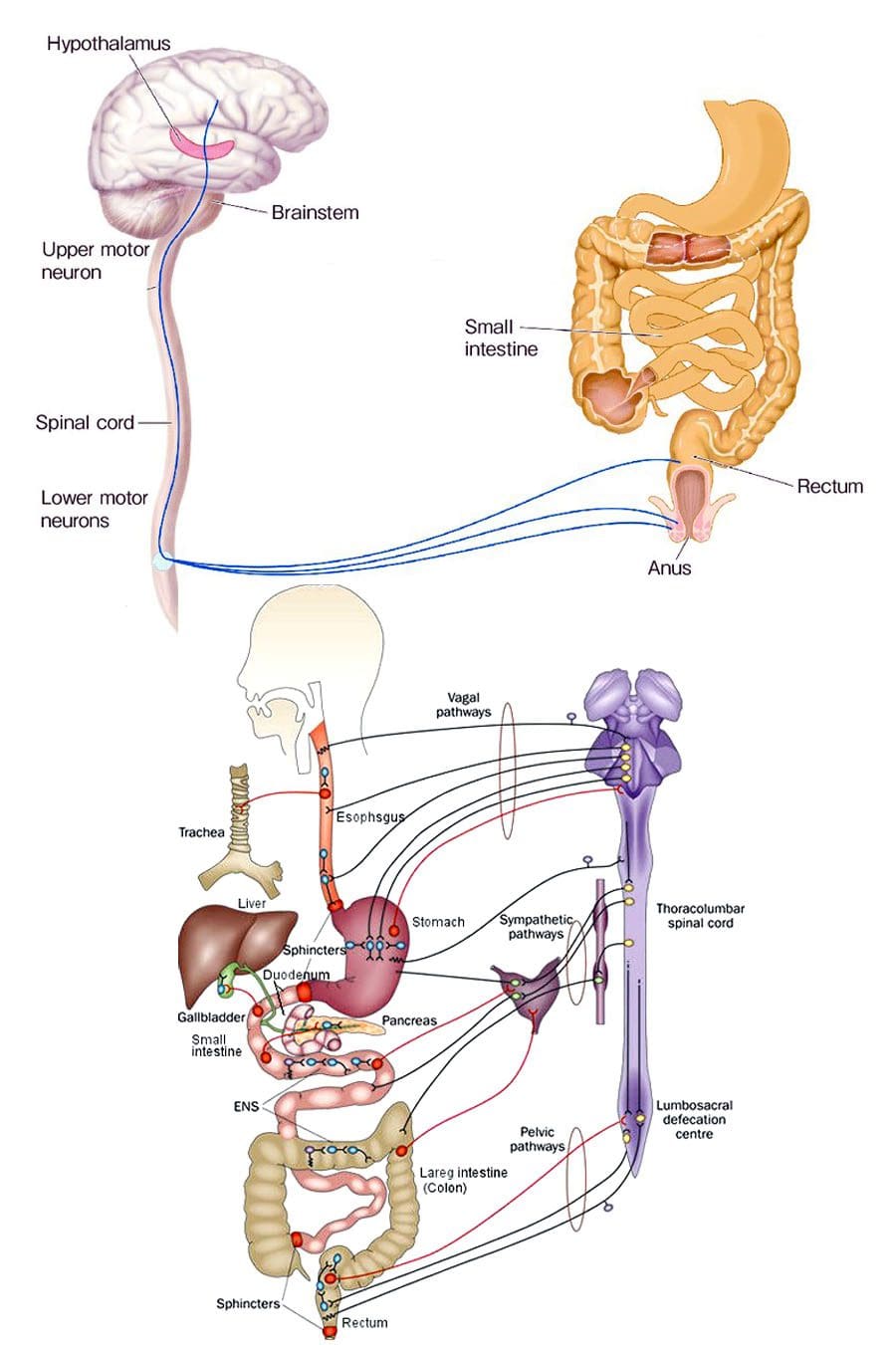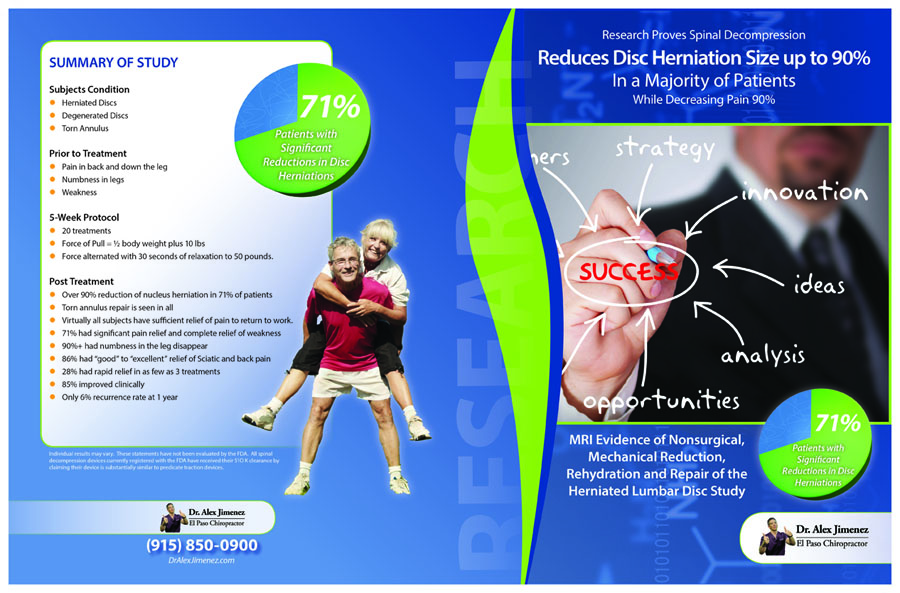Spinal decompression and Digestion. No one wants to worry about stomach issues. A rich and unhealthy diet can cause digestive issues, stomach pain, and back pain. This can turn into a severe chronic condition; studies have found links between spinal problems and gastrointestinal tract symptoms, which include:
- Abdominal pain that radiates.
- Constipation.
- Difficulty controlling bowel movements.
- Diarrhea.
- Nausea.
- Vomiting.

Chiropractic treats the spine that is essential to the function of the central nervous system, which is responsible for digestion. When the nervous system is not functioning correctly, the other systems begin to malfunction. Chiropractic manual and motorized spinal decompression can help with digestion by releasing trapped gas from joints while improving blood circulation that is natural and non-invasive.
Spinal Decompression and Digestion
Spinal alignment and digestion are closely connected. The nerves in the thoracic and lumbar regions affect digestion. When the spine is out of alignment, it stresses the nerves. Nerves that are pinched or constricted are inhibited/disrupted from sending the proper signals to the digestive system. This can lead to new or worsening digestive problems. Spinal conditions that can cause digestive issues:
- Herniated discs
- Ankylosing spondylosis
- Spinal cord injuries
- Tumors
Studies have found that digestive issues, including discomfort, heartburn, and bloating, have decreased with regular chiropractic and spinal decompression and decreased constipation and irregular bowel movements. This comes from chiropractic reactivating the body’s natural ability to heal itself.
Increased Circulation
- When the spine gets decompressed, it opens up the spine to circulate fluids throughout the body.
- This flushes the lymphatic system, increasing the immune system's function.
- Increasing the circulation also provides additional oxygen and nutrients to the brain, improving signaling, memory, and concentration.
Improved Digestion
- Poor posture compresses the abdomen and cramps the space the gastrointestinal tract needs to process food properly.
- Decompressing the spine and correcting posture allows room for the muscles to contract, expand, and properly circulate waste.
Bowel Program
Treatment focuses on preventing further injuries and helping improve the individual's quality of life. A doctor, chiropractor, health coach, or nutritionist can recommend a bowel program to help retrain the body to maintain regular bowel movements. These programs are personalized to the individual's specific condition that takes into account:
- Level of the spine injury or condition
- Food and drink intake
- Bowel movement pattern
- Digestive problems
- General health
- Individual preferences
A bowel program sets up the timing of food intake, fluid intake, medications, and techniques to help bowel movements. The objective is to prevent spontaneous bowel movements, help pass stools regularly, and empty the rectum daily.
Spinal Decompression Reduced Disc Herniation UP To 90%

DRX9000 Decompression Treatment
The information herein is not intended to replace a
one-on-one relationship with a qualified health care professional, or licensed
physician, and is not medical advice. We encourage you to make your own healthcare decisions based on your research and partnership with a qualified healthcare professional. Our information scope is limited to
chiropractic, musculoskeletal, physical medicines, wellness, sensitive health
issues, functional medicine articles, topics, and discussions. We provide and
present clinical collaboration with specialists from a wide array of
disciplines. Each specialist is governed by their professional scope of
practice and their jurisdiction of licensure. We use functional health &
wellness protocols to treat and support care for the injuries or disorders of
the musculoskeletal system. Our videos, posts, topics, subjects, and insights
cover clinical matters, issues, and topics that relate to and support, directly
or indirectly, our clinical scope of practice.* Our office has made a reasonable
attempt to provide supportive citations and has identified the relevant
research study or studies supporting our posts. We
provide copies of supporting research studies available to regulatory boards
and the public upon request.
We understand that we cover matters that require an
additional explanation of how it may assist in a particular care plan or
treatment protocol; therefore, to further discuss the subject matter above,
please feel free to ask Dr. Alex
Jimenez or contact us at 915-850-0900.
Dr.
Alex Jimenez DC, MSACP, CCST, IFMCP*, CIFM*, ATN*
email: coach@elpasofunctionalmedicine.com
Licensed in: Texas & New Mexico*
References
Browning, Kirsteen N, and R Alberto Travagli. “Central nervous system control of gastrointestinal motility and secretion and modulation of gastrointestinal functions.” Comprehensive Physiology vol. 4,4 (2014): 1339-68. doi:10.1002/cphy.c130055
Holmes, Gregory M, and Emily N Blanke. “Gastrointestinal dysfunction after spinal cord injury.” Experimental neurology vol. 320 (2019): 113009. doi:10.1016/j.expneurol.2019.113009
Kehl, Amy S et al. “Relationship between the gut and the spine: a pilot study of first-degree relatives of patients with ankylosing spondylitis.” RMD open vol. 3,2 e000437. 16 Aug. 2017, doi:10.1136/rmdopen-2017-000437
Lara, Francisco Javier Pérez et al. “Chronic abdominal syndrome due to nervous compression. Study of 100 cases and proposed diagnostic-therapeutic algorithm.” Journal of gastrointestinal surgery: official journal of the Society for Surgery of the Alimentary Tract vol. 19,6 (2015): 1059-71. doi:10.1007/s11605-015-2801-8




